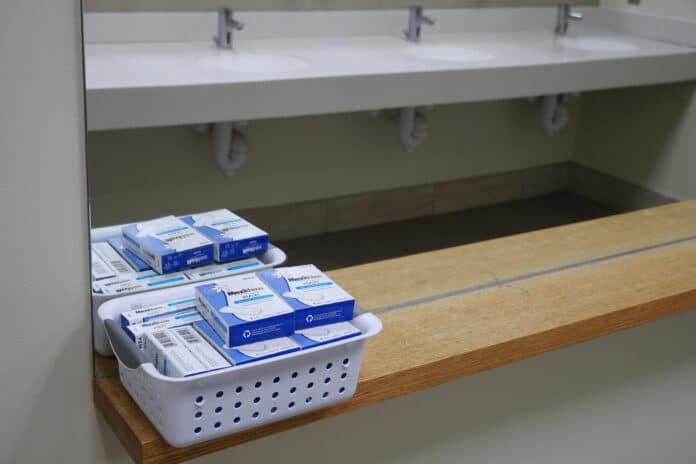
(Center of the American Experiment) — A new law requiring Minnesota public schools to stock free menstrual products in bathrooms used by students in 4th through 12th grade goes into effect Jan. 1, 2024. The requirement was one of the first bills given a hearing by both the House and Senate Education Policy Committees this past legislative session.
Menstrual products include “pads, tampons, or other similar products used in connection with the menstrual cycle.” School districts must develop a plan to make the products available in the boy and girl bathrooms “regularly” used by students, according to the law.
Districts receive “$2 times the adjusted pupil units of the school district for the school year” to pay for the menstrual products.
"Not all students who menstruate are female," said DFL Rep. Sandra Feist during a hearing to consider a bill that would provide menstrual products in all school bathrooms, including boys' bathrooms. Read more: https://t.co/X5AG5JFdGz pic.twitter.com/kbVLb89ojz
— Alpha News (@AlphaNewsMN) January 17, 2023
During a House Education Policy Committee meeting on the bill this past January, an amendment to add the word “female” before the student reference was rejected (“…in restrooms regularly used by female students in grades 4 to 12…”). “Not all students who menstruate are female,” bill author Rep. Sandra Feist stated. “This [the amendment] is just another way to divide people in our schools,” added Thomas Stinson, a licensed school nurse at Harding High School.
Catrin Wigfall
Catrin Wigfall is a Policy Fellow at Center of the American Experiment.
Catrin’s experience in education and policy research began during her time with the Young Leaders Program at The Heritage Foundation. Her interest in education policy led her to spend two years teaching 5th grade general education and 6th grade Latin in Arizona as a Teach for America corps member. She then used her classroom experience to transition back into education policy work at the California Policy Center before joining American Experiment in February 2017.
Catrin graduated summa cum laude from Azusa Pacific University in California, where she earned a Bachelor of Arts degree in Political Science.















